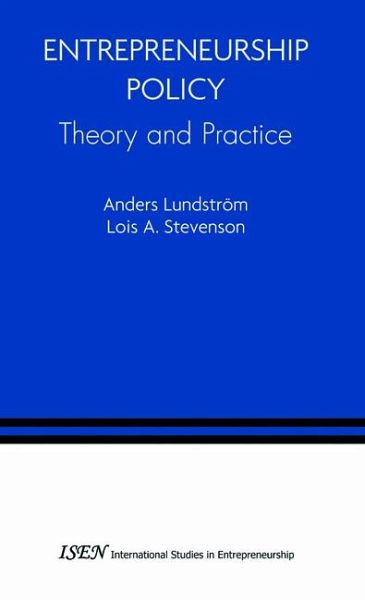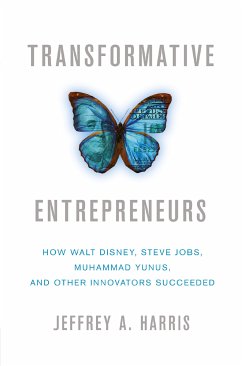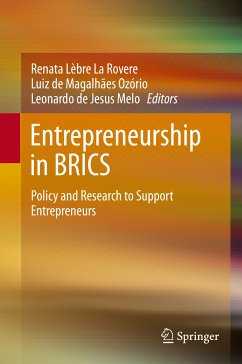
Entrepreneurship Policy: Theory and Practice (eBook, PDF)
Versandkostenfrei!
Sofort per Download lieferbar
160,95 €
inkl. MwSt.
Weitere Ausgaben:

PAYBACK Punkte
80 °P sammeln!
Entrepreneurship Policy: Theory and Practice is the first book to fully analyze the construction of entrepreneurship policy, a rapidly-evolving area of policy about which little is known. From a study and assessment of the practices of governments in thirteen countries in Europe, North America and the Asia-Pacific, this book fully describes the policy area and shares new tools and methods for better understanding and explaining the why and how of an entrepreneurship policy approach.Unlike other research in the field of entrepreneurship where implications from research findings are used to sugg...
Entrepreneurship Policy: Theory and Practice is the first book to fully analyze the construction of entrepreneurship policy, a rapidly-evolving area of policy about which little is known. From a study and assessment of the practices of governments in thirteen countries in Europe, North America and the Asia-Pacific, this book fully describes the policy area and shares new tools and methods for better understanding and explaining the why and how of an entrepreneurship policy approach.
Unlike other research in the field of entrepreneurship where implications from research findings are used to suggest what policy actions should be taken to increase the level of entrepreneurship in an economy, this study is based on what entrepreneurship policy actions are being taken. This is a unique book in the field which points to the way forward both for policymakers and for the research community in terms of thinking about entrepreneurship policy and the complex issues surrounding its development.
Unlike other research in the field of entrepreneurship where implications from research findings are used to suggest what policy actions should be taken to increase the level of entrepreneurship in an economy, this study is based on what entrepreneurship policy actions are being taken. This is a unique book in the field which points to the way forward both for policymakers and for the research community in terms of thinking about entrepreneurship policy and the complex issues surrounding its development.
Dieser Download kann aus rechtlichen Gründen nur mit Rechnungsadresse in A, B, BG, CY, CZ, D, DK, EW, E, FIN, F, GR, HR, H, IRL, I, LT, L, LR, M, NL, PL, P, R, S, SLO, SK ausgeliefert werden.













